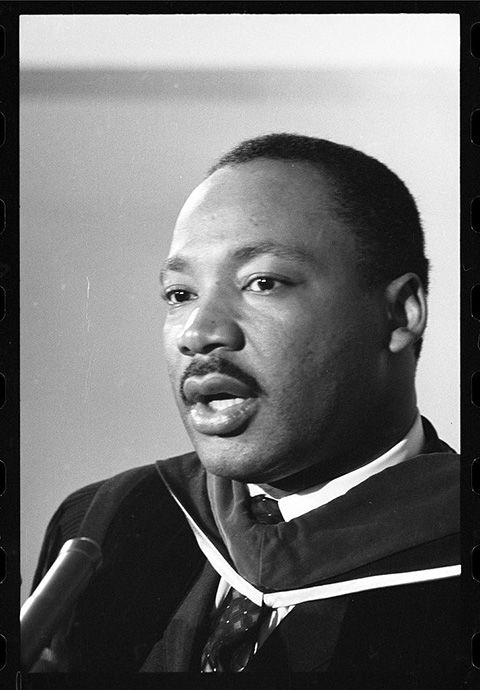MLK 2024: Your Voice Counts…Use it!
Penn State Behrend will honor the life and legacy of Martin Luther King Jr. with events, service projects, and activities beginning Monday, January 20.
Monday, January 20
Annual Martin Luther King March and Events in Downtown Erie
11:00 a.m.–4:00 p.m.
Meet in Reed Wintergarden if planning to travel with the group.
Join the Black Student Union (BSU) and other members of the campus community as they make their way to the City of Erie to participate in its annual MLK March. Everyone will meet in the Reed Union Building’s lobby at 11:00 a.m. and ride an EMTA bus to the march’s site. Individuals are also welcome to drive themselves.
Wednesday, January 22
King's Dream
12:00 p.m.–1:00 p.m.
Bruno's Cafe
Join us at this special Rhythms of Life event—A captivating multimedia presentation on the life of Dr. Martin Luther King Jr. captures the spirit of the civil rights movement. The era comes alive with live commentary, engaging songs, and power archival film footage that tells a story of drama, perseverance, and inspiration.
All events are free and open to the public. Sponsored by the Office of Educational Equity and Diversity Programs and the Student Activity Fee. Questions may be directed to the Office of Educational Equity and Diversity Programs at [email protected] or 814-898-7101.
Penn State encourages persons with disabilities to participate in its programs and activities. If you anticipate needing any type of accommodation or have questions about the physical access provided, please contact Lindsey Hopkins Hall in advance of your participation or visit.
